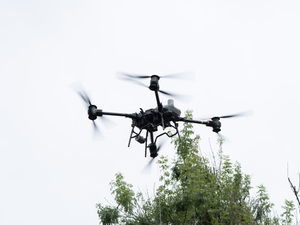UC Berkeley Scientists Are About to Launch a Groundbreaking Mars Mission That Could Change Space Exploration Forever

Photo by Piermario Eva on Unsplash
In a thrilling leap for space exploration, UC Berkeley scientists are preparing to launch a revolutionary Mars mission that could dramatically transform our understanding of the Red Planet. The ESCAPADE project, set to deploy twin satellites named Blue and Gold, represents a bold and cost-effective approach to interplanetary research.
These twin satellites will embark on an extraordinary journey, using Earth’s gravity to slingshot towards Mars in 2026 and arriving in late 2027. Their unique mission involves capturing unprecedented detailed measurements of Mars’ atmosphere and magnetic field, offering scientists an intricate, real-time view of planetary dynamics never seen before.
The mission carries profound implications for future human exploration. Mars presents extreme challenges for potential human missions, including dangerous radiation exposure. During one recent solar storm, the planet experienced radiation levels equivalent to 30 chest x-rays in mere minutes. ESCAPADE’s research could provide critical insights into protecting future astronauts from these harsh conditions.
Beyond human safety, the satellites will investigate Mars’ mysterious environmental history. Billions of years ago, Mars potentially hosted liquid water and a thicker atmosphere conducive to life. By studying current atmospheric interactions with solar winds, scientists hope to unravel how the planet transformed from a potentially habitable world to the barren landscape we observe today.
What makes ESCAPADE particularly exciting is its innovative, budget-conscious approach. While previous Mars satellite missions cost hundreds of millions of dollars, this project was developed for just $49 million – a fraction of traditional exploration budgets. This approach represents a bold strategy to make space exploration more accessible and efficient.
As UC Berkeley planetary scientist Robert Lillis explains, this mission provides “a whole new set of ‘eyes’ in understanding how space weather impacts planetary atmospheres”. The project exemplifies how cutting-edge technology and creative scientific approaches can unlock profound mysteries about our solar system.
The launch, potentially happening as early as November 9th from Cape Canaveral, Florida, marks an exciting milestone in humanity’s ongoing quest to understand our cosmic neighborhood.
AUTHOR: cgp
SOURCE: The Mercury News





















































